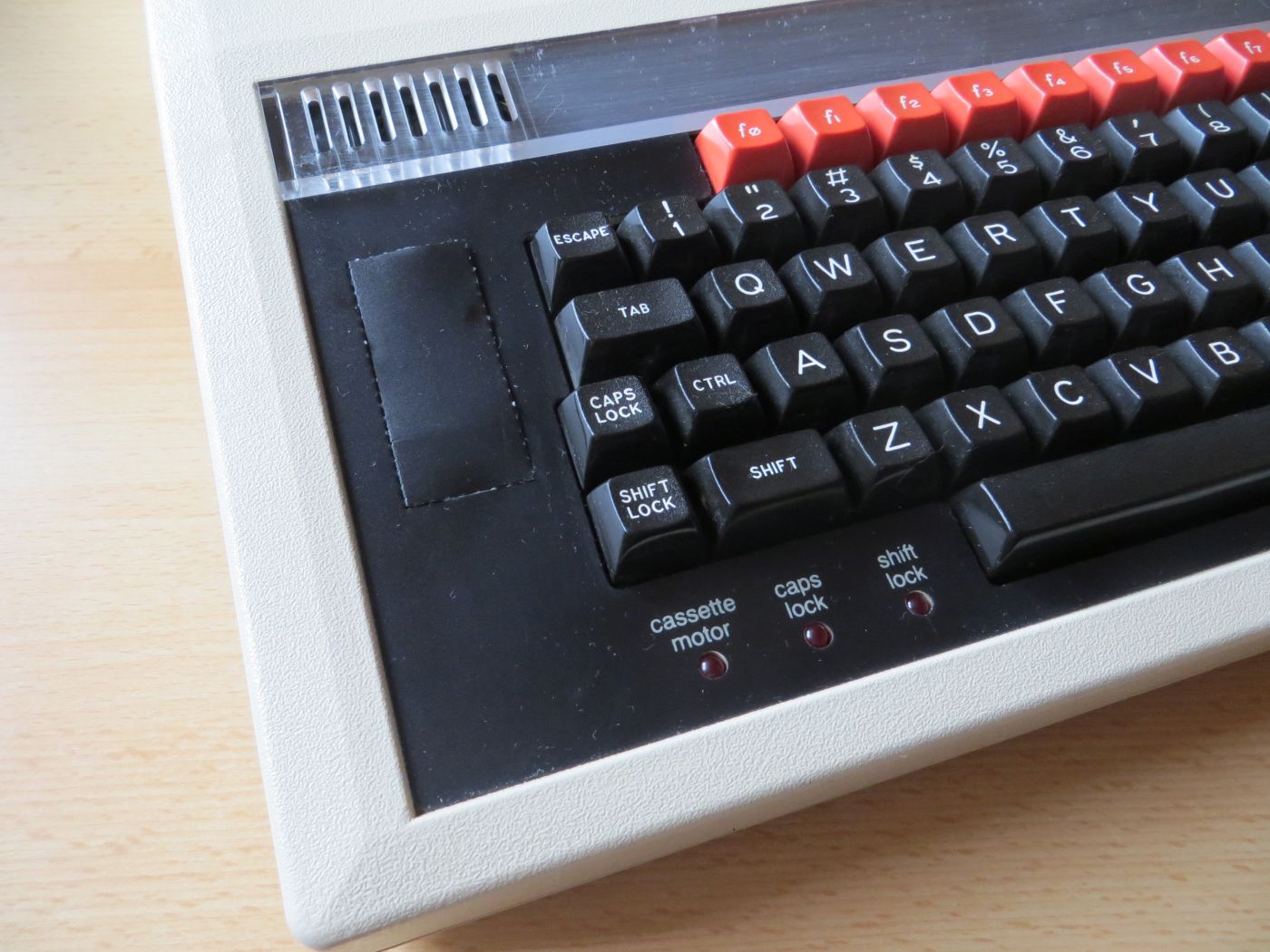
Acorn BBC Micro Model B LED’s Jungsis Corner
English. The BBC Microcomputer System, or BBC Micro, was a series of microcomputers and associated peripherals designed and built by the Acorn Computer company for the BBC Computer Literacy Project, operated by the British Broadcasting Corporation. Designed with an emphasis on education, it was notable for its ruggedness, expandability and the.
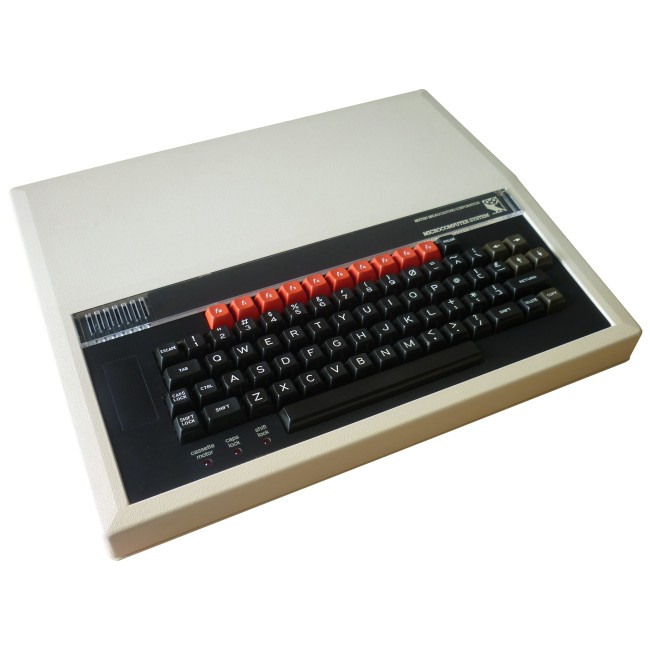
Image Acorn BBC Micro Model B Computing History
The BBC Master is a home computer released by Acorn Computers in early 1986. [1] It was designed and built for the British Broadcasting Corporation (BBC) and was the successor to the BBC Micro Model B. The Master 128 remained in production until 1993. [2] [3] Design The Master series featured several improvements over earlier BBC Micro models.

Acorn BBC Micro type 1 keyboard
The BBC gave Acorn a demanding list of requirements. These included a need to work with different outputs, cassette-tape and printer interfaces, and support for old and new hardware. How did Acorn manage to deliver what the BBC wanted? Herman Hauser and Steve Furber discuss the development of the BBC Micro. Recorded winter 2021.

Retro Isle Acorn BBC
Witness the working of the Colossus, the world's first programmable electronic computer with the help of a replica. See researchers simulate the 3-D motion of the human rhinovirus using IBM Blue Gene Q supercomputer to understand how the virus works. Learn about the BBC Micro, a microcomputer made in the 1980s by Acorn Computers, a British company.

Acorn BBC Micro Launched Event Computing History
The BBC Micro was developed by Acorn computers for the BBC who were embarking on an education programme for the UK called the "BBC Computer Literacy Project". The BBC made it their mission to have at least one of these machines available in every school in the UK.

Acorn BBC Micro type 1 keyboard
Acorn BBC Micro Upgrades Acorn produced a range of 9 upgrades for the BBC Micro which were housed in a common case which was the same shape and about half the width of a BBC Micro, hence they are often know as "cheese wedges". They are: Teletext Adapter Prestel Adapter IEEE488 Interface
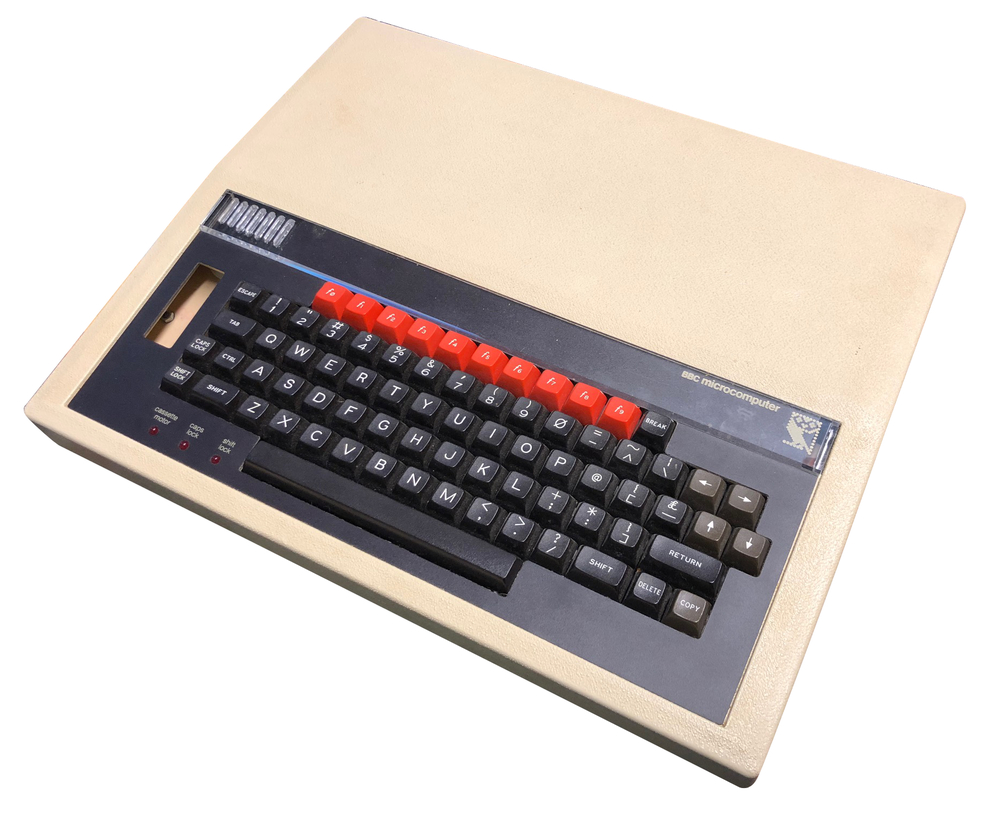
Acorn BBC Micro Model A (Issue 2 Board) Computer Computing History
Acorn BBC Micro Model B - Computer - Computing History Acorn BBC Micro Model B Home > Browse Our Collection > Computers > Acorn Computers > Acorn BBC Micro Model B The BBC Microcomputer was launched in December 1981 as part of the BBCs Computer Literacy Project.
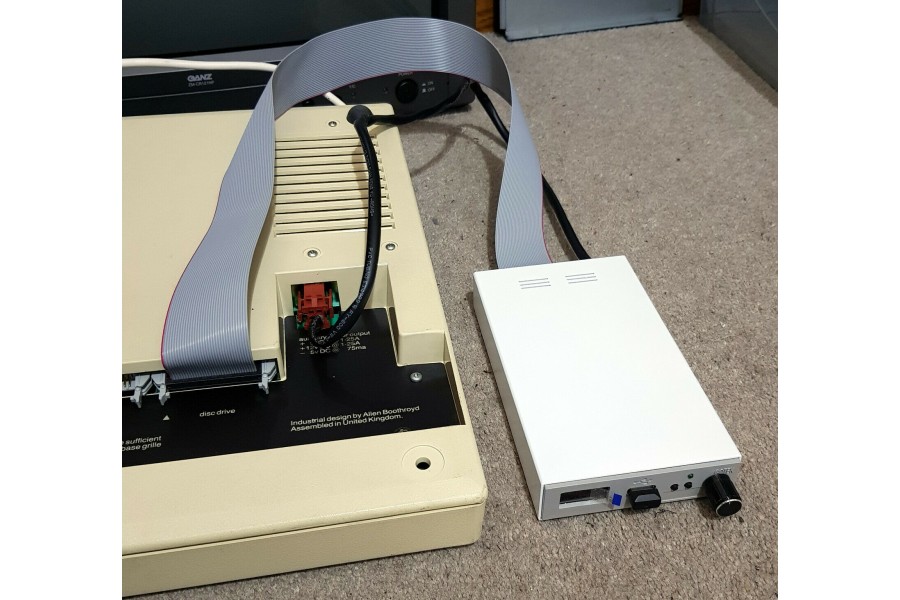
Acorn BBC Micro Model B / Master External USB Floppy Disk Emulator Drive in Metal Enclosure
If you are British though there is likely to be one machine that will provide a common frame of reference for owners of all machines of that era: The Acorn BBC Microcomputer which was.
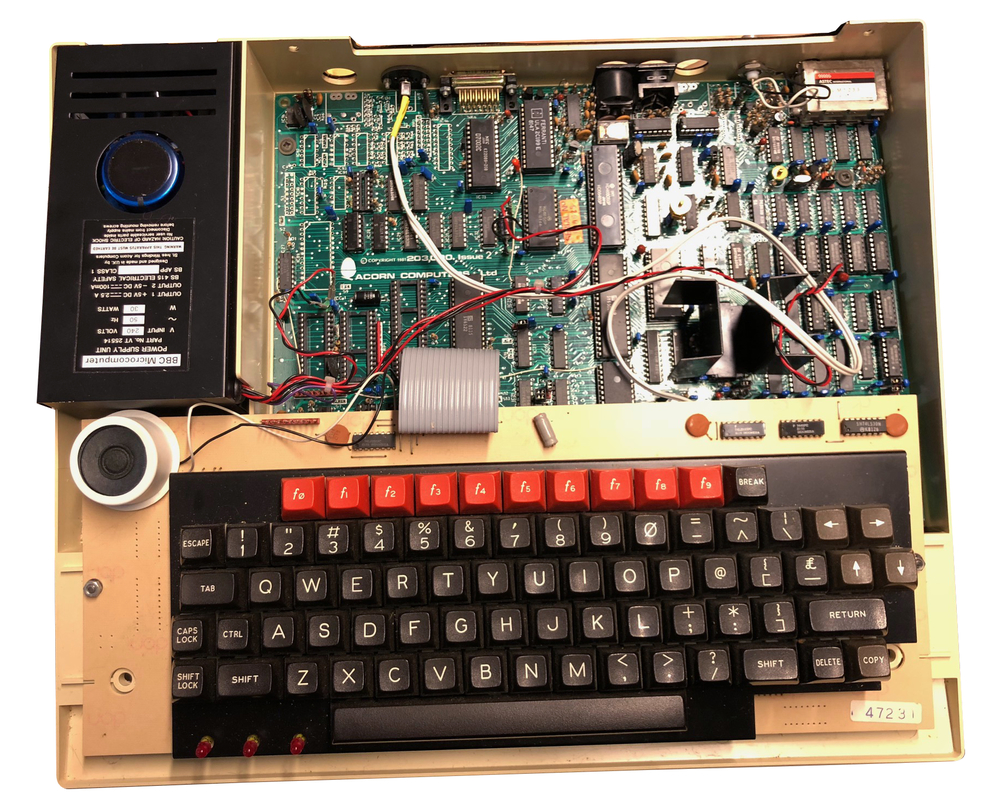
Acorn BBC Micro Model A (Issue 2 Board) Computer Computing History
The Acorn "Proton" was redesigned and became the "BBC Microcomputer System". Regarded by the government as extremely important for the future, many agencies were willing to help and advise the BBC. The Department of Industry decided it would subsidise half of the price for each Model that Britain's schools purchased.

Acorn BBC Micro Model B+ 64K (Acorn R&D) Computer Computing History
Acorn was a Cambridge-based firm that started in 1979 after developing computer systems originally designed to run fruit machines—we call them slot machines—then turning them into small hobbyist.

Acorn BBC Micro Model B+ (64K) Computer Computing History
The British Broadcasting Corporation Microcomputer System, or BBC Micro, is a series of microcomputers designed and built by Acorn Computers Limited in the 1980s for the Computer Literacy Project of the BBC.
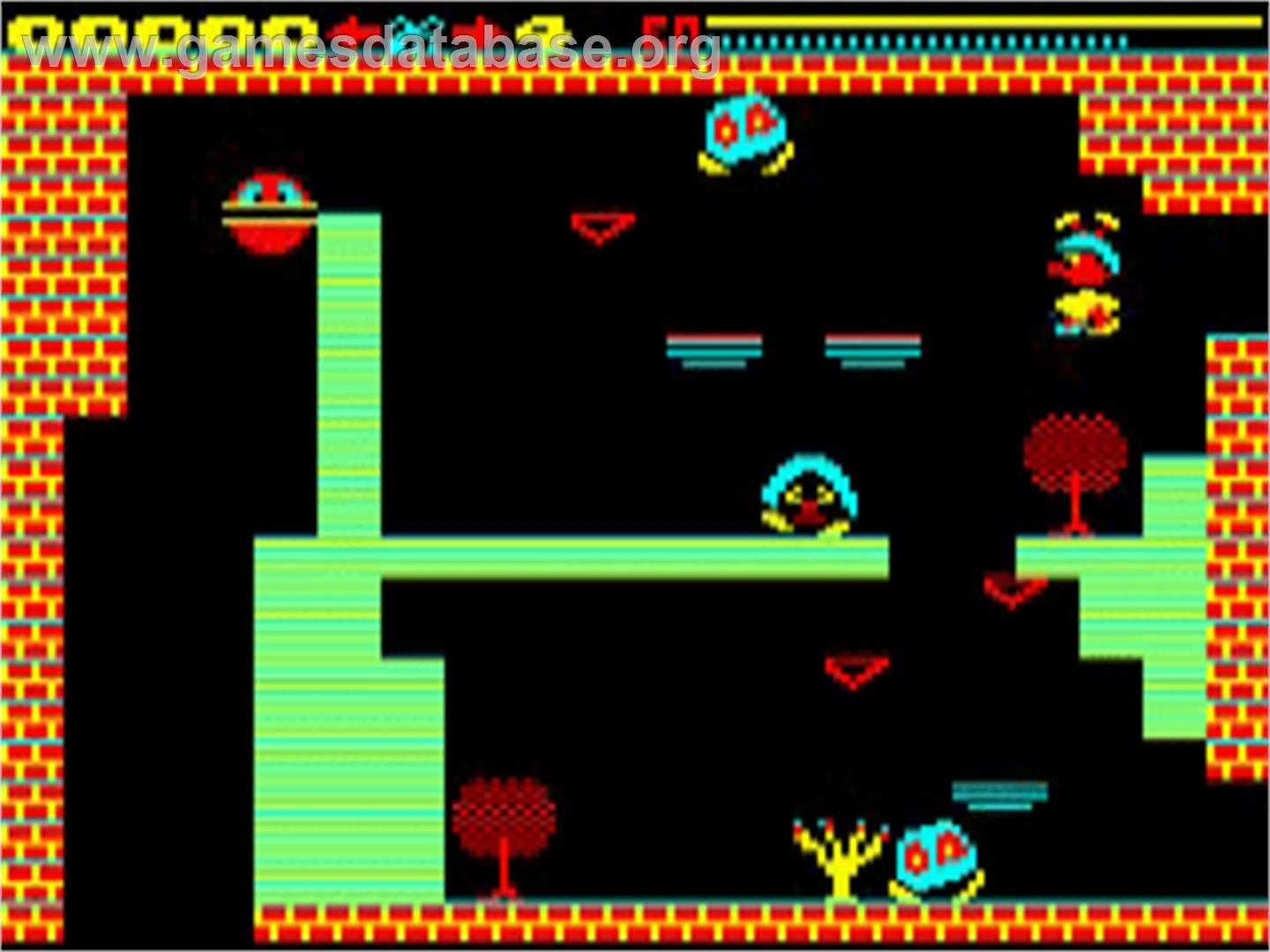
Pandemonium Acorn BBC Micro Artwork In Game
The BBC Microcomputer System from Acorn Computers Ltd, commonly known as the BBC Micro or Beeb, was a series of 6502-based 8-bit microcomputers introduced in the United Kingdom in late 1981/early 1982. Contents. 1 Overview.. The BBC Micro has no writable, non-volatile memory. To partially alleviate this, eight bits of "start up options" can.
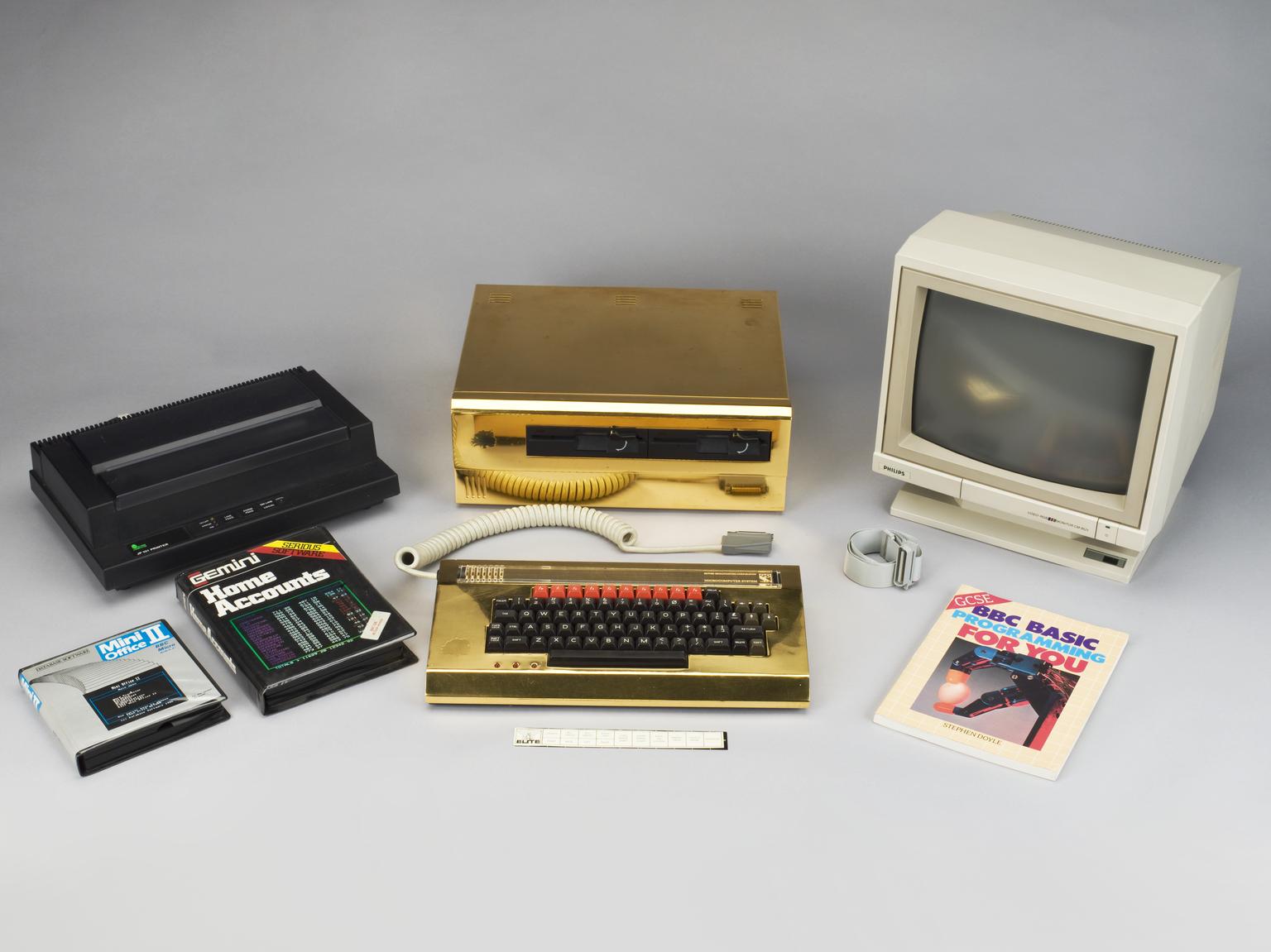
Gold plated BBC Micro personal computer, 1985 Science and Industry Museum blog
The BBC Micro, a computing revolution dressed in light brown plastic. Digital literacy campaign Computing How the BBC Micro started a computing revolution Acorn Computers of Cambridge changed.
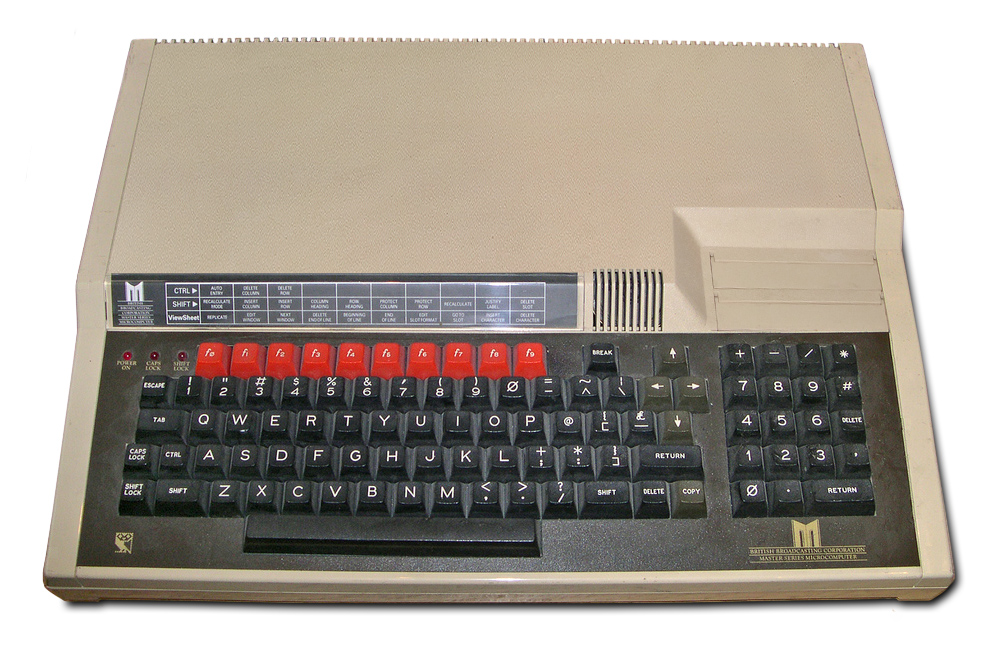
BBC Micro Computer
Acorn Computers Ltd. was a British computer company established in Cambridge, England, in 1978. The company produced a number of computers which were especially popular in the UK, including the Acorn Electron and the Acorn Archimedes. Acorn's BBC Micro computer dominated the UK educational computer market during the 1980s. [1]

Acorn BBC Micro Model B+ (128K) Computer Computing History
[2] is a discontinued computer (OS) used in Acorn Computers ' BBC computer range. It included support for four-channel sound, graphics, abstraction, and digital and analogue input/output (I/O) including a daisy-chained expansion bus. The system was single-tasking, and non- reentrant

Kevan's Computer Bits Product Acorn BBC Micro
Beyond the BBC Micro. Little attention was devoted to the next major successor to the BBC Micro: ARM (Acorn RISC Machine), Archimedes, and Arthur OS (subsequently renamed RISC PC and RISC OS respectively). The Archimedes was notable for being the earliest RISC home computer, but it would fail to become popular because of limited software selection and competition from companies like Amstrad.
